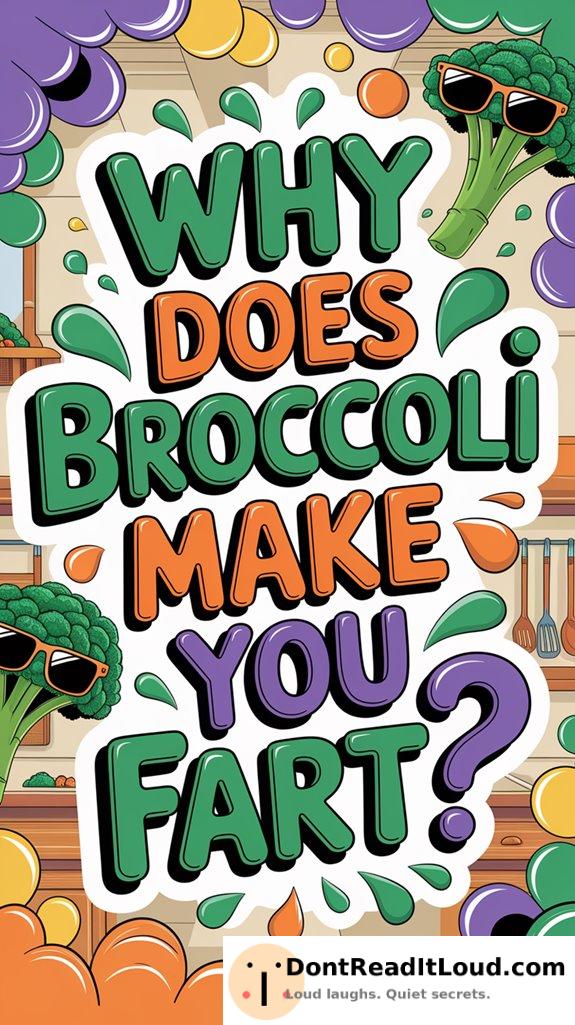
Broccoli can cause gas because it’s high in fiber and contains a sugar called raffinose, which aren’t fully broken down in your small intestine. When these reach your colon, gut bacteria ferment them and release gases like hydrogen, carbon dioxide, and methane. Sulfur compounds in broccoli also add to the production of hydrogen sulfide gas. If you want to enjoy broccoli without discomfort, there are helpful tips and tricks you can try.

Although broccoli is a nutritious powerhouse, it can also lead to some uncomfortable side effects, like increased flatulence. You might wonder why this happens every time you enjoy a healthy serving of this green vegetable. The main culprits are fiber fermentation and sulfur compounds present in broccoli. Let’s look at how these factors lead to the gassiness you might notice after eating broccoli.
Broccoli is high in dietary fiber, which your body doesn’t digest in the small intestine. This undigested fiber travels to your colon, where trillions of gut bacteria get to work. As these bacteria ferment the fiber, gases like hydrogen, carbon dioxide, and sometimes methane are produced, resulting in more flatulence. Broccoli’s cultivation began in the Mediterranean region around the 6th century BCE, where it was improved by Roman farmers. For some individuals, food sensitivities can change with age, and keeping a food diary can help identify how much broccoli contributes to their gassiness.
Besides fiber, broccoli also contains a sugar called raffinose. Since you lack the enzyme to break down raffinose in your small intestine, it moves to your large intestine. There, bacteria ferment raffinose, adding to the gas in your digestive system. The amount of gas you produce depends on your unique gut bacteria, so reactions can differ from person to person.
Broccoli, being a cruciferous vegetable, is also rich in sulfur compounds. Gut bacteria break these down and release gases such as hydrogen sulfide, which has a strong “rotten egg” odor. This is why broccoli-related gas can be especially pungent.
How much gas you experience from broccoli depends on several things. Eating larger portions increases the amount of undigested material for bacteria to ferment. Cooking methods matter too: raw broccoli can be harder to digest, while steaming or microwaving may make it gentler on your stomach. Cooking cruciferous vegetables can reduce their gas-forming potential, making them easier to digest.
Your gut bacteria and how used you’re to high fiber foods also play a role. If you add fiber to your diet slowly, your body may adapt and produce less gas over time.
Chewing broccoli thoroughly helps with digestion and might reduce gas. So, while eating broccoli can sometimes cause extra flatulence, understanding the reasons can help you manage the effects and keep enjoying this healthy vegetable.
Conclusion
If you find yourself getting gassy after eating broccoli, you’re definitely not the only one. The fiber and raffinose in broccoli are tough for your body to break down, causing fermentation and gas in your gut. Still, don’t let this keep you from enjoying its health benefits. Try cooking broccoli well or slowly eating more over time to help your body adapt. A little extra gas is a small trade-off for all the nutrients you get!



